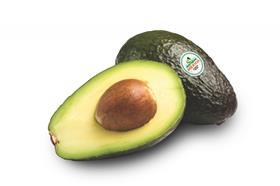
Avocado sales were up 28 per cent in 2016 while prepared salads enjoyed 12 per cent growth, according to retail figures released by FMCG data provider IRI.
With supermarket sales of £187 million, avocados came third in IRI’s list of growth products for 2016, with revenues increasing by £41m over the course of the year. Prepared salads, meanwhile, saw retail sales of £397m, rising by £43m and coming in at number 12 in the list.
Topping the list were almond milk with 32 per cent growth, while coconut water and juice smoothies also performed well, growing by 20 per cent and 18 per cent respectively.
A clear trend towards alternative or healthy products was behind the products’ strong sales performance, according to IRI, which provides big data and predictive analytics for FMCG manufacturers and retailers.
The organisation’s head of strategic insight for retail Martin Wood said: “2016 was the year of so-called ‘clean eating’ led by a group of lifestyle gurus, food bloggers and Instagrammers who are highly influential among consumers, particularly younger shoppers.
“IRI’s figures suggest the trend may have influenced what people put in their shopping baskets, with some products showing exceptional growth in an FMCG market that has been relatively flat over the last 12 months.”
Wood noted that 2016 saw “more sustained growth over most of the year” than is normally the case. Generally, sales of fruit and veg surge in the early part of the year, triggered by New Year's resolutions to be more healthy.
Sales did slip in the lead-up to Christmas, however, with healthy products suffering at the expense of spirits, wine and festive treats.
IRI identified a move away from less healthy products, like sugary drinks, and the growth in vegetarian alternatives as major growth drivers for retailers and food and drink manufacturers. New product innovation and improved distribution of healthy products were also factors, according to the data provider.
“Retailers are wising up to changing consumer habits and preferences and this is making a big difference in the availability of certain products on supermarket shelves,” Wood said.
“Retailers are also faced with a dilemma – balancing demand by shoppers for choice and convenience with the need to rationalise product ranges and make the whole shopping experience easier.”






No comments yet